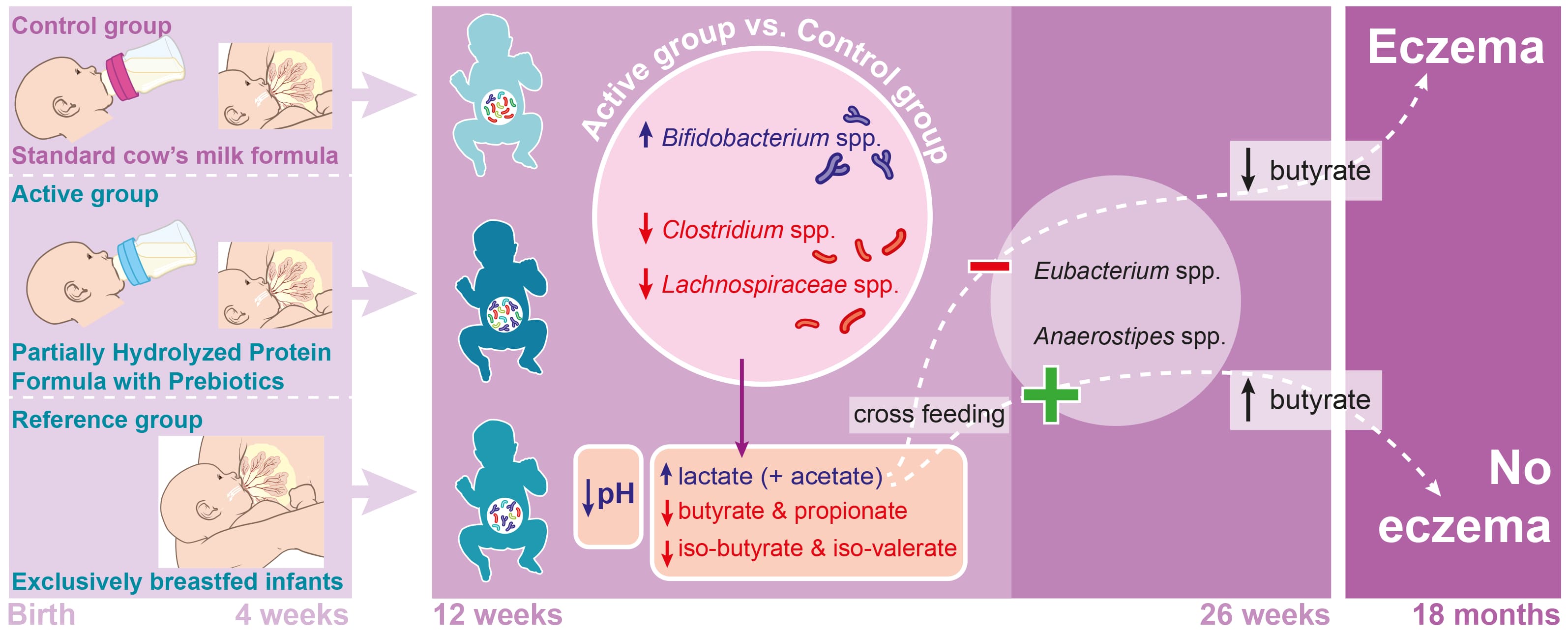Title: Intestinal Microbiota in Infants at High-risk for Allergy: Effects of Prebiotics and Role in Eczema Development
| Authors: | Harm Wopereis, BSc., Kathleen Sim, MRCPCH, Ph.D, Alexander Shaw, Ph.D, John O. Warner, MD, FMedSci, Jan Knol, Ph.D, J. Simon Kroll, MA, FMedSci |
| Published: | 2017 |
| Journal: | Journal of Allergy and Clinical Immunology |
The prevalence of allergic diseases worldwide is rising dramatically in both developed and developing countries, affecting today 30 to 40% of the world population. Dysbiosis of the gut microbiota, and imbalance of gut bacteria composition compared to healthy individuals, is associated with an increased risk of allergies. There is growing evidence that a balanced gut microbiota is a fundamental factor to strengthen the immune system and thus help reduce the risk of allergy.
A new study investigated the effect of early life nutrition on the assembly of intestinal microbiome in infants at high risk of allergy.
This study is a sub-study of the PATCH clinical study, investigating the effect of pHP formula supplemented with specific prebiotic mixture including scGOS/lcFOS on the reduction of cow’s milk protein allergy development in high risk infants.
It showed that partially hydrolysed protein (pHP) supplemented with prebiotics including scGOS/lcFOS modulates the gut microbiota of high risk infants for allergy closer to that of breastfed infants, indicating that it could help reduce the risk of allergies later in life in setting a proper environment for the immune system.

For more information on PATCH Clinical study, please visit Patch clinical study page.
Access to the publication here: http://www.jacionline.org/article/S0091-6749(17)31343-X/pdf.
in Infants at High-risk for Allergy: Effects of Prebiotics and Role in Eczema Development, Journal of
Allergy and Clinical Immunology (2017), doi: 10.1016/j.jaci.2017.05.054.